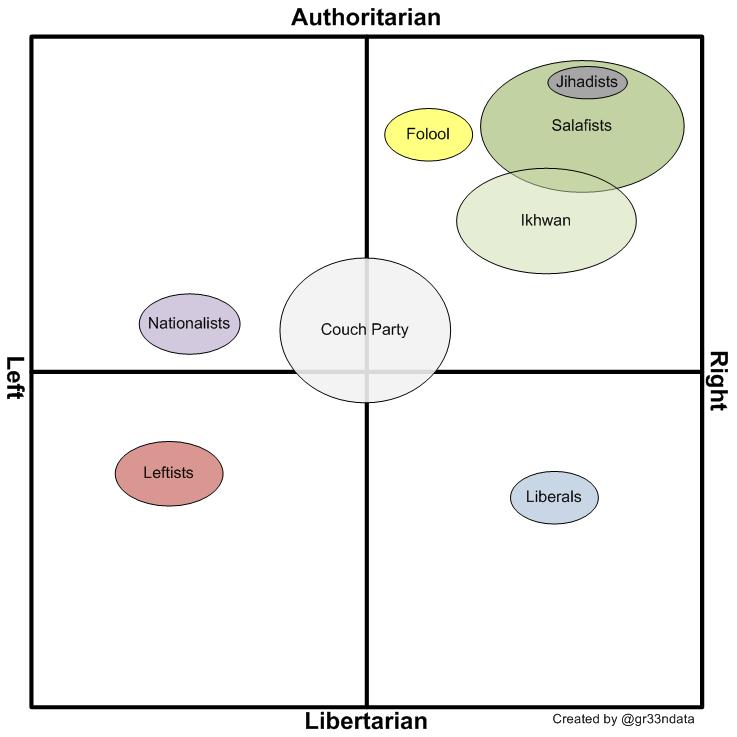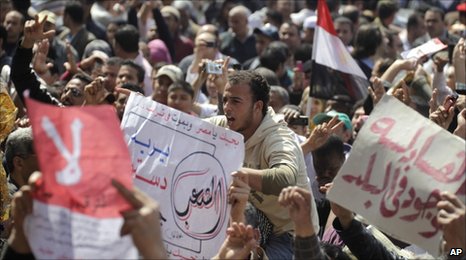Middle East/North Africa Analysis: The Rise of a "Civic Islamism"? (Sadiki)
 Wednesday, November 16, 2011 at 10:09 |
Wednesday, November 16, 2011 at 10:09 |  Scott Lucas in
Scott Lucas in  Africa,
Africa,  EA Global,
EA Global,  EA Middle East and Turkey,
EA Middle East and Turkey,  Middle East and Iran
Middle East and Iran  Rachid Ghannounchi, leader of Tunisia's EnnadhaCivic Islamism is linked with the novelty of the context, the Arab Spring, and the new dynamic of legalised Islamism as in Egypt and Tunisia. Civic Islamism displays features of impressive organisation for the contest of power, coupled with an aptitude to penetrate secular civil society through coalition-building with non-Islamists.
Rachid Ghannounchi, leader of Tunisia's EnnadhaCivic Islamism is linked with the novelty of the context, the Arab Spring, and the new dynamic of legalised Islamism as in Egypt and Tunisia. Civic Islamism displays features of impressive organisation for the contest of power, coupled with an aptitude to penetrate secular civil society through coalition-building with non-Islamists.
Only through inclusion, competition, participation and the tests of "power", will this force learn to moderate its politics, gradually learning to take its place amongst the progenitors of civic politics in the Arab spring states.
 Egypt,
Egypt,  Ennadha Party,
Ennadha Party,  Libya,
Libya,  Muslim Brotherhood,
Muslim Brotherhood,  Rachid Ghannouchi,
Rachid Ghannouchi,  Syria,
Syria,  Tunisia
Tunisia 






